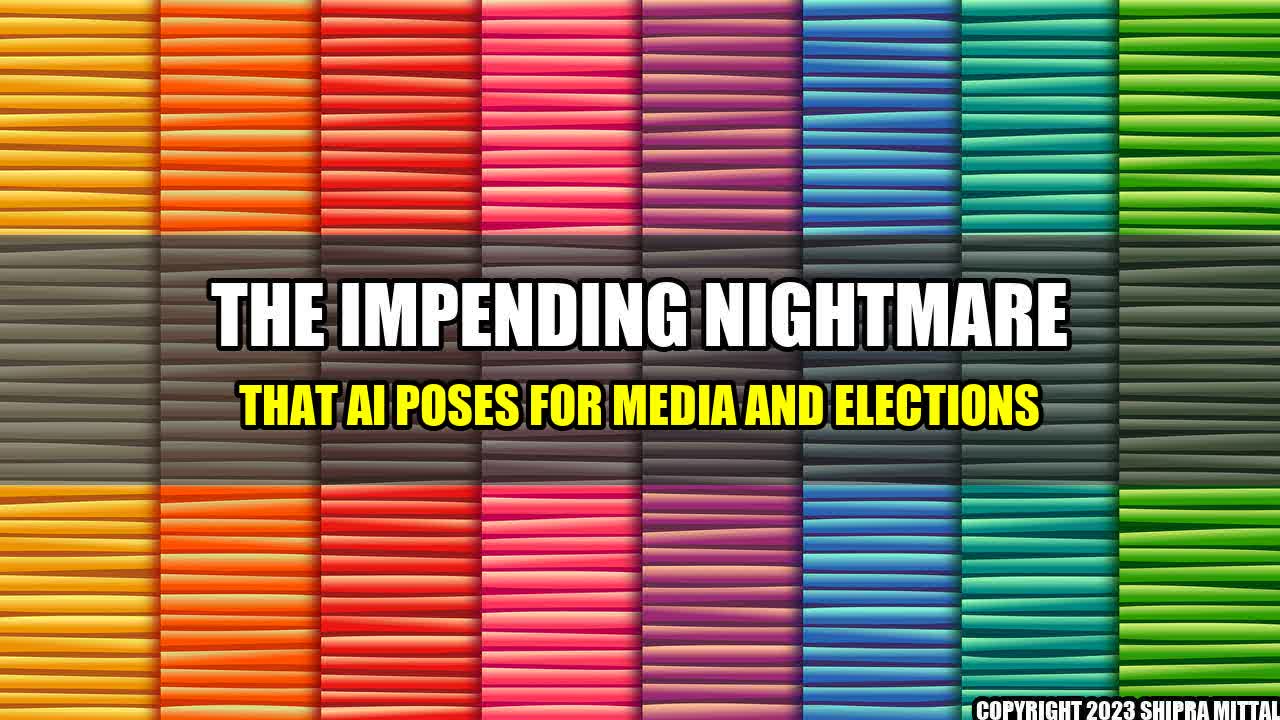Alex was a journalist working for a leading news organization. He had been assigned to cover the upcoming presidential campaign trail. Alex was excited to be covering such an important event and had already made plans for the next few months. However, just before he left for the first assignment, he received some unsettling news.
The newsroom had recently implemented an AI system to help with its news coverage. The AI could analyze massive amounts of data and provide insights that would help journalists write better stories. At first, Alex was skeptical of the new system, but as he dug deeper, he realized the AI was retelling the same story, but from different angles, better than he ever could.

Alex's experience is not unique. AI is changing the way newsrooms operate, and its implications for democracy are becoming increasingly evident. With the upcoming elections, the role of AI in the media has become crucial, and it calls for a critical examination of what this means for us moving forward.
Here are some concrete examples of how AI is changing media:
- AI can analyze user data and target content based on the user's preferences, leading to filter bubbles and echo chambers that reinforce existing biases and limit exposure to alternative viewpoints.
- AI-generated content can be indistinguishable from human-generated content, leading to issues of credibility and authenticity.
- AI can detect and spread propaganda and fake news at a scale humans cannot match, leading to the amplification of divisive and inflammatory content that threatens democracy and social cohesion.
- AI can shape public opinion subtly without being detected, leading to the manipulation of elections and decision-making processes.
What does this mean for our future?
1. We need to be aware of the limitations and biases of AI and implement safeguards to prevent harm.
2. We need to promote media literacy and critical thinking skills in our schools and communities to combat the spread of misinformation and promote informed decision-making.
3. We need to have a wider public discourse about the impact of AI on society and engage diverse stakeholders to shape a more responsible and ethical use of this powerful technology.

Social
Share on Twitter Share on LinkedIn